https://ebookmass.com/product/the-chinese-economyadaptation-and-growth-the-mit-press/
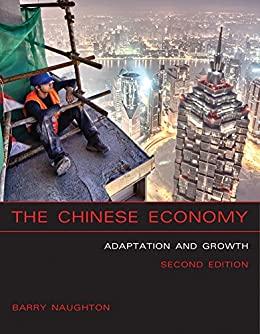
Download more ebook from https://ebookmass.com
More products digital (pdf, epub, mobi) instant download maybe you interests ...
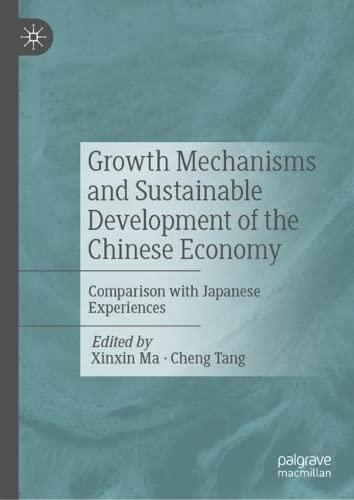
Growth Mechanisms and Sustainable Development of the Chinese Economy: Comparison with Japanese Experiences
Xinxin Ma
https://ebookmass.com/product/growth-mechanisms-and-sustainabledevelopment-of-the-chinese-economy-comparison-with-japaneseexperiences-xinxin-ma/
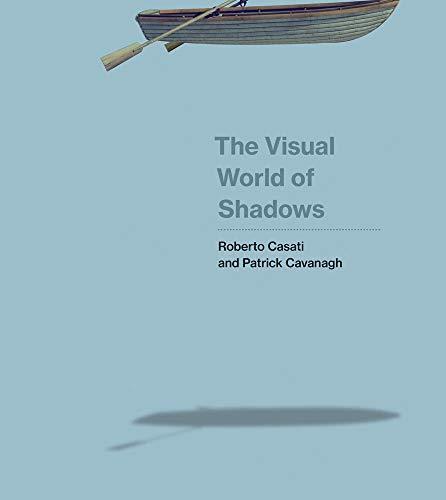
The
Visual World of Shadows (The MIT Press) 1st Edition
https://ebookmass.com/product/the-visual-world-of-shadows-themit-press-1st-edition/
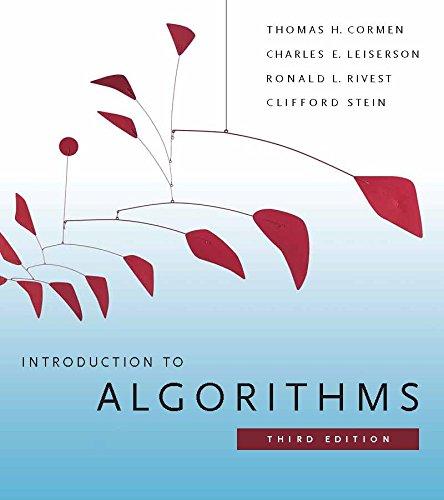
Introduction to Algorithms (The MIT Press) 3rd Edition, (Ebook PDF)
https://ebookmass.com/product/introduction-to-algorithms-the-mitpress-3rd-edition-ebook-pdf/
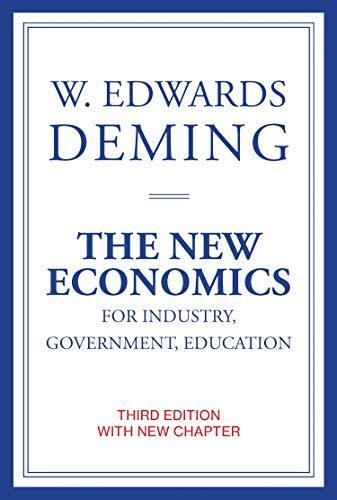
The New Economics for Industry, Government, Education (The MIT Press) third
https://ebookmass.com/product/the-new-economics-for-industrygovernment-education-the-mit-press-third/
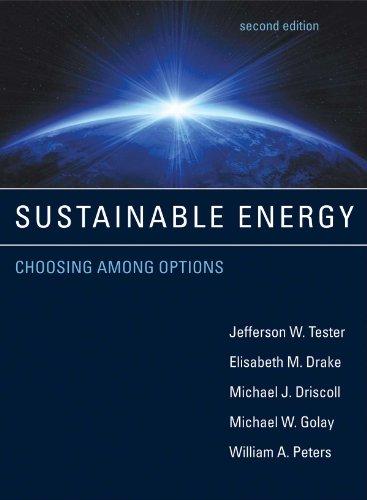
Sustainable Energy: Choosing Among Options (The MIT Press) 2nd Edition, (Ebook PDF)
https://ebookmass.com/product/sustainable-energy-choosing-amongoptions-the-mit-press-2nd-edition-ebook-pdf/
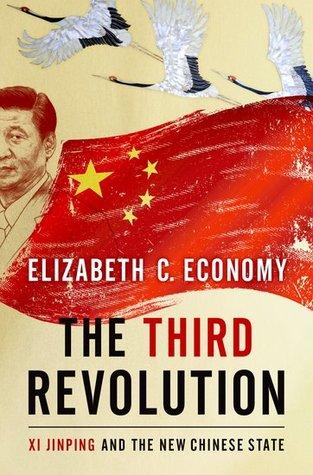
The Third Revolution: XI Jinping and the New Chinese State Elizabeth Economy
https://ebookmass.com/product/the-third-revolution-xi-jinpingand-the-new-chinese-state-elizabeth-economy/
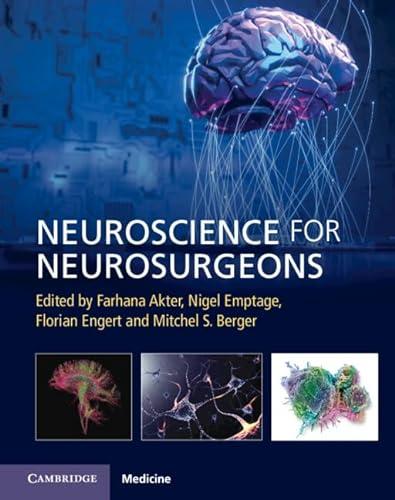
Neuroscience for Neurosurgeons (Feb 29, 2024)_(110883146X)_(Cambridge University Press) 1st
Edition Farhana Akter
https://ebookmass.com/product/neuroscience-for-neurosurgeonsfeb-29-2024_110883146x_cambridge-university-press-1st-editionfarhana-akter/
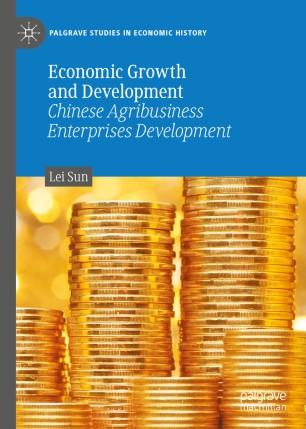
Economic Growth and Development: Chinese Agribusiness
Enterprises Development 1st ed. Edition Lei Sun
https://ebookmass.com/product/economic-growth-and-developmentchinese-agribusiness-enterprises-development-1st-ed-edition-leisun/
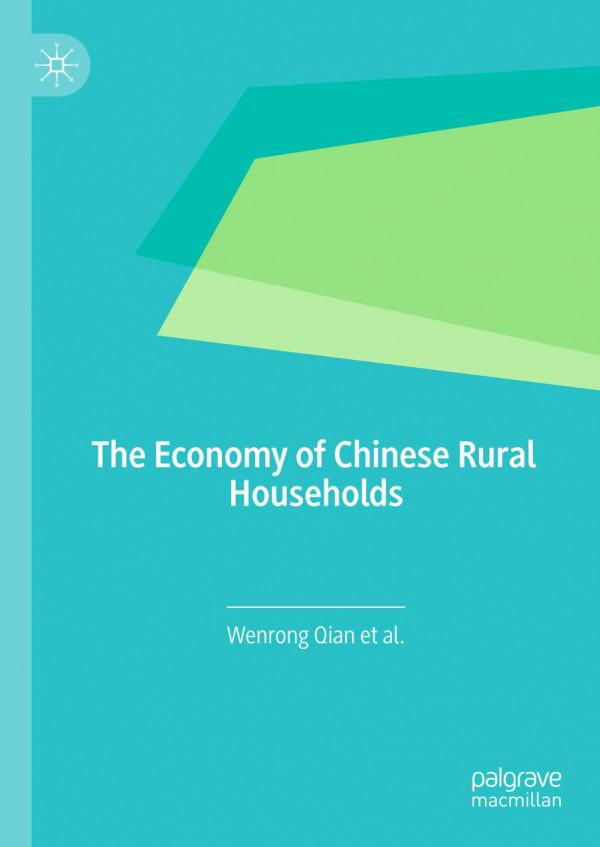
The Economy of Chinese Rural Households 1st ed. 2020
Edition Wenrong Qian
https://ebookmass.com/product/the-economy-of-chinese-ruralhouseholds-1st-ed-2020-edition-wenrong-qian/
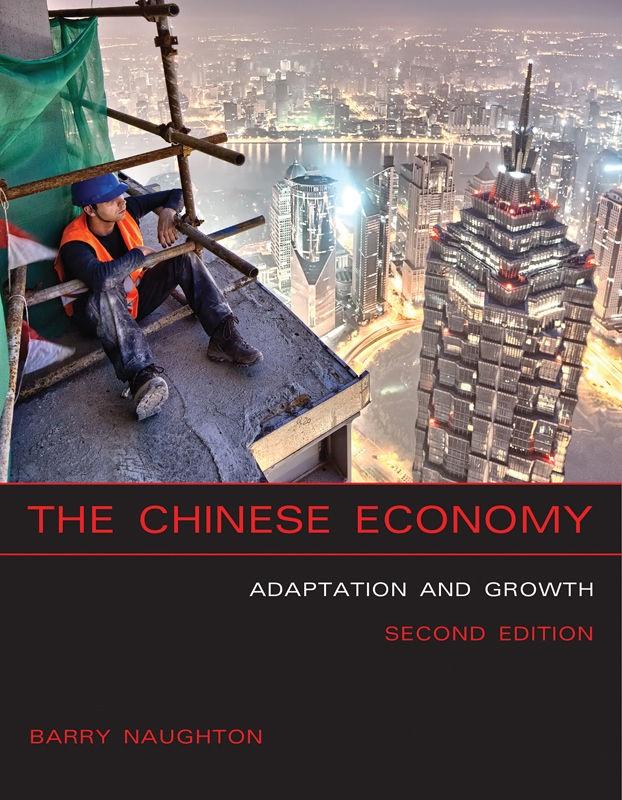
Figure 18.1 Consumer inflation, 1983–2016.
Figure 18.2 Demand-side components of growth.
Figure 18.3 Fiscal surplus or deficit (percent of GDP).
Figure 18.4 Growth of credit and nominal GDP (2009–2016).
Figure 19.1 Financial deepening: M2 and household saving.
Figure 19.2 Stock-market capitalization as share of GDP.
Figure 19.3 Value of bonds outstanding (right-hand axis) and share of GDP.
Figure 19.4 Nominal and real deposit rates (1997–2015).
Figure 19.5 Total social financing.
Figure 20.1 Budget share of GDP.
Figure 20.2 Types of budgetary outlays.
Figure 20.3 Central and local budgetary expenditure (share of GDP).
Figure 20.4 Central-government share of budgetary revenue and expenditure.
Figure 20.5 Local-government land revenues (share of GDP).
Shanghai 2005, from the Jinmao Tower in Pudong. Compare front cover image, which looks down on this vantage point.
Figure 21.1 Energy consumption: Domestic production and imports.
Figure 21.2 Energy use per unit of real GDP (oil equivalent per 2011 PPPadjusted dollar).
Figure 21.3 Map of south–north water transfer routes.
List of Tables
Table 1.1 China’s 2015 GDP in international context.
Table 2.1 Land and population, 2012.
Table 3.1 Two patterns of industrialization.
Table 3.2 A benchmark comparison: China 1952 and India 1950.
Table 4.1 Two contrasting industrialization strategies.
Table 5.1 Contrasting styles of economic reform.
Table 6.1 Interprovincial migration.
Table 7.1 Growth of per capita GDP (average annual growth rates, percentage).
Table 7.2 Incremental capital/output ratio (ICOR).
Table 7.3 China GDP growth and TFP (1952–2005).
Table 8.1 Reported sex ratio at birth (males per 100 females).
Table 8.2 Percentage of population age 65 or older.
Table 9.1 Educational attainment of the Chinese population (percent).
Table 10.1 Growth of real per capita household income.
Table 10.2 Comparison of Human Development Index, 2014.
Table 11.1 Changes in the organization of agriculture.
Table 11.2 Labor days per hectare.
Table 12.1 Grain production, imports, and exports (2014) (million metric tons; percent).
Table 13.1 Distribution of shares in privatized TVEs (three sites in Shandong and Jiangsu, 2000).
Table 13.2 TVE employment by ownership, 2010.
Table 14.1 Central SASAC share of state-enterprise workers.
Table 14.2 Debt-equity ratios.
Table 15.1 Sectoral targets of industrial policy.
Table 16.1 Chinese exports: Share of total by firm ownership.
Table 16.2 Top import and export categories, 2016 (billions of US$).
Table 16.3 China’s largest trading partners, 2015 (billions of US$).
Table 16.4 Regional shares of China’s exports.
Table 18.1 Stimulus package investment plan (November 2008).
Table 19.1 Simplified flow of funds.
Table 19.2 Banking-sector assets (by type of bank).
Table 19.3 Nonperforming loans in China’s banking system.
Table 20.1 2014 fiscal revenues by type.
Table 20.2 Budgetary expenditures on social services.
Table 20.3 2014 fiscal and quasi-fiscal revenues.
Table 21.1 Energy consumption, 2016.
Table 21.2 Water-quality class of main river systems, 2015.
List of Boxes
Box 7.1 Calculating GDP.
Box 7.2 Purchasing power parities.
Box 8.1 Birthrates and total fertility rates.
Box 14.1 Ownership and governance.
Box 17.1 How Chinese SEZs are similar to Asian EPZs.
Box 17.2 How Chinese SEZs differ from Asian EPZs.
Acknowledgments
In preparing this revised edition of The Chinese Economy, I had invaluable assistance from Henrique Barbosa, Li Xin, and Kieran Naughton. It was challenging, to say the least, to try to update and expand a general work to encompass the enormous changes that have occurred in China over the past decade. I benefited greatly from the close reading and generous comments I received from Ralph Huenemann, Peter Lorentzen, and Louis Putterman. Three anonymous readers from MIT Press helpfully showed me where more work was needed and shaped the final product. At the Press, Emily Taber stepped ably into John Covell’s shoes and shepherded the whole process to completion.
The students at the School of Global Policy and Strategy (GPS) at the University of California, San Diego served as the test bed, lead market, and inspiration for the work. In addition, as scholarly exchanges and interactions with China have multiplied, I have increasingly benefited from the comments and reactions of colleagues at Chinese universities. Presentations at Tsinghua University, Peking University, and Fudan University in particular helped me to refine and modify arguments in this text.
The first edition of this book included two full pages acknowledging practical and intellectual debts I had accrued over the years. Those still stand; although the debts have been acknowledged, they have not been repaid.
Introduction: The Chinese Economy in Context
For the past 35 years, China has been the best-performing economy in the world. China’s gross domestic product (GDP) has grown faster for longer than that of any other economy in history. Furthermore, the Chinese economy is now huge, comparable in size and global impact only to that of the United States. China is now a driver of the world economy, in part because it has benefited enormously from the wave of globalization that has washed over the world in the past three decades. How has China achieved this extraordinary economic success? China is not an obvious candidate for prosperity, in the way that the United States and other “lucky countries” are. China has faced development problems that today’s rich countries never had to face. Bringing its massive population out of poverty required China to overcome daunting geographic and resource limitations. China entered its rapid growth period far behind technologically and without the institutional framework and rule of law that rich countries had developed over centuries to support their sophisticated market economies. Yet China dismantled the socialist “command” system, created a dynamic market economy, and vaulted into the ranks of uppermiddle-income economies. China has forged its own development strategy in a way that no country has ever done before, independent of the simplistic prescriptions of some brands of orthodox economics. Today, after more than three decades of extraordinary success, China must adapt its strategy to dramatically changed conditions that point to significantly slower growth. A newly middle-class society demands new goods and services, a better environment, and more robust social policies. Can policy-makers deliver? Do they have the will to overhaul their approach to development, given the success it has brought them thus far? How big is the danger that hidden vulnerabilities will bring China’s miraculous growth to a screeching halt? The Chinese economy continues to display both unmatched dynamism and unrivaled complexity.
It is useful to think of economic development as made up of two fundamental processes: structural change and institutional transformation. Structural change refers to real changes in the distribution of resources and activity. At the macro-structural
level, the most fundamental change is the movement of labor and capital out of agriculture into the cities, and indeed China has transformed into a primarily urban industry and service-oriented economy over the past 35 years. Institutional transformation refers to changes in the organizations, information, and incentives that guide economic decision-makers. Governments, businesses, and households respond to the “rules of the game” in pursuing their objectives. China has undergone a dramatic institutional transformation from a “command economy” to a predominantly market economy. Both structural change and institutional transformation are sources of productivity improvement and income growth, and thus of economic development.
The objective of this book is to trace these broad processes of structural change and institutional transformation through the most important areas of the economy. From 1978 through 2010, both structural change and institutional transformation had their maximum possible effect on economic growth: the result was the extraordinary period we label the “miracle growth” period. Today, China has advanced to uppermiddle-income status, and there is less opportunity for structural and institutional changes to drive growth: the miracle growth period is over. However, China still has robust growth potential, and medium-rapid growth over the coming decades will drive substantial catch-up and improvement in Chinese standards of living.
Structural change displays some common patterns in all growing economies. Although China has some distinctive features, China’s industrialization can be easily situated in common structural processes. But structural change, as we shall see, is not just a “macro” phenomenon, but also an intermediate, or “meso” phenomenon, affecting specific sub-sectors, and also incorporating changes in demographic and technological structure. Institutional change by contrast, evolves from a specific context, and Chinese institutions are utterly distinctive. As a result, institutional change plays out in China in even more complex ways, in an incentive environment quite different from that in most economies. The objective of this volume, then, is to make China’s ascent comprehensible by integrating the specific realities of China today with the broad patterns of structural and institutional change. Throughout, we hope to convey both the sources of strength and the challenges and vulnerabilities that have confronted China, including those overcome in the past and those that still face China today.
1.1 Enabling Conditions
China could not have achieved such dramatic growth without important advantages. Underpinning China’s success are at least four favorable factors that influence nearly every aspect of Chinese economic performance:
1. Extraordinary human resources: China’s people have a strong entrepreneurial drive, a cultural repertoire of market-friendly behaviors, and a powerful desire for educational achievement and increased knowledge. Moreover, they were already relatively healthy and literate at the end of the 1970s, so they were well positioned to take advantage of the sudden, massive increase in opportunities brought about by economic reform.
2. Global division of labor: China’s opening corresponded precisely with a stage in the evolution of the global economy that permitted the dis-aggregation (or delocalization) of global manufacturing. This allowed the smooth transfer of laborintensive export manufacturing from the already successful East Asian miracle economies to a newcomer China with low-cost, high-quality human resources and skills. China’s factor endowment in the 1980s was a perfect complement to the world economy at that stage.
3. Enormous “catch-up” potential: Economists recognize that there are advantages of backwardness: the bigger the distance from the technology frontier, the more rapid the potential growth during the catch-up period. However, this potential can be realized only if there are sufficient enabling conditions, such as those provided by the two previous factors. China’s enormous economic potential and human resources attracted interest and investment, enabling China to catch a wave of technological advance, most obviously in the spread of telecommunications and Internet technology.
4. A government with the capacity to learn: The Chinese government carried out an incremental and adaptive program of economic reform. This creativity was especially evident in the 1980s and 1990s, when China broke away from the command economy and created the fundamental institutions necessary to develop a robust market economy.
In other words, China in 1978 was in many respects well positioned for economic development. But many apparently well-positioned countries have stumbled in the development process, and some have stumbled repeatedly. China has been able to maintain a rapid pace of transformation. To accomplish this, China had to undergo a process of structural transformation, a technological revolution, the conversion from
one demographic regime to another, and system reform that became systemic transformation. These concrete processes make up the subject matter of this book.
1.2 Growth and Development Level
From the beginning of the reform era in 1978 through 2010, China sustained an average annual economic growth rate of 10% according to official statistics. Rapid growth and huge population have long implied that China would one day emerge as one of the world’s largest economies. As table 1.1 shows, this promise has now become reality. China’s GDP reached US$11 trillion in 2015, valued at the prevailing exchange rate. China is the world’s second-largest GDP after the United States ($18 trillion). If the figures are adjusted for purchasing power differences, according to the World Bank’s international comparison project, China is already the world’s largest GDP. In constant 2011 dollars adjusted for purchasing power parity (PPP) based on the 2011 benchmarking exercise China’s GDP reached $18.6 trillion in 2015, surpassing the United States figure of $16.9 trillion (in 2011 prices). In PPP terms, China and the United States each account for one-sixth of total global output (see box 7.2 on page 163).
The growth that has made China a great economic power has not yet made it a rich country. China is the most populous country in the world, despite a declining growth rate: its population reached 1.375 billion in 2015. When the vantage point shifts to per capita values, the landscape changes dramatically. From a global standpoint, China is remarkably average. In terms of income, China’s PPP-adjusted GDP per capita is close to the world mean value. Although China is still below the global mean, its growth rate is well above the global rate, so China will likely reach the global average in 2018 at about $16,000 in PPP terms.1 China is a typical “upper-middle-income” country according to the World Bank’s classification, right in the middle of that range. Other indicators related to the structure of the economy tell a consistent story. Urbanization the share of population in cities exactly equaled the global average of 53% in 2013, after decades of catch-up growth, and reached 57% in 2016. China’s
human resource indicators are a little better than global averages; for example, life expectancy at birth in China in 2015 was calculated at 76, significantly above the global average of 71.7 and above the upper-middle-income average of 74.7 (but below the high-income average of 80.7, or the United States at 78.7). Overall, China is fairly representative of world average development levels; it is no longer poor but is still a long distance from being a rich country. After adjustment for PPP, per capita GDP is exactly one-quarter of that in the United States.
This position in the global economy could be problematic. In simple terms, the upper-middle-income neighborhood that China now inhabits is rather crowded, while the range just above it is sparsely populated. Over 2.5 billion people live in countries with PPP-adjusted per capita GDP between $10,000 and $18,000, including China, Brazil, Mexico, Iran, Egypt, and Indonesia. China’s objective is to break out of the pack and make it into the group of high-income countries (above $30,000). Above $18,000, the terrain between upper-middle- and high-income status is rather thinly populated and may be especially hard to traverse. Only 400 million people live in countries with per capita GDPs between $18,000 and $30,000. Moreover, most of these are in the former Soviet republics and countries that have recently joined the European Union. Outside these categories, the only large countries (over 5 million population) in this range are Turkey, Malaysia, and Chile. The small number of countries in this range partially reflects the difficulty that a few countries (Mexico, Brazil, and Thailand, for example) have had in breaking out of the $10,000–$18,000 range. This has led to discussion of a “middle-income trap.” The essential idea of the middle-income trap is that while it is reasonably straightforward for an economy to develop the skills to industrialize, urbanize, and move out of poverty, it is more difficult to find a path to high-income status. Reaching high-income status requires stronger technical capabilities, better institutions, and more innovation. These factors pose challenges to China as well.
Yet it is obviously possible for China to overcome the middle-income trap. There are already 1.07 billion people living in high-income countries, with per capita GDP over $30,000. All these wealthy countries, without exception, fall into one of three categories: Europe and the four countries of predominantly European settlement (the United States, Canada, Australia, and New Zealand); oil producers; and East Asian high-performance economies. The East Asian growth stars are clearly the relevant comparison group for China. Japan, Korea, Taiwan, Hong Kong, Singapore, and Macao have all made it to upper-income status. China is more like these economies than any other in all respects except size. The growth miracle China experienced from 1978 through 2010 was similar to that experienced by other East Asian economies,
such as Japan and Korea, but bigger and longer. China started from similar economic conditions (but lower per capita income) and underwent similar demographic and structural changes. It adopted related programs of opening and market reform. We should expect that China also has the capability to follow these former growth miracles into high-income status. However, we should also expect China to run into some of the same obstacles and encounter the same pitfalls as these forerunner economies. Moreover, each of these economies experienced unanticipated difficulties when its miracle growth phase ended. China is not fated to repeat the experience of any given forerunner economy. Still, the question that defines China’s big economic challenges today is: Can China adapt its policies and institutions to the requirements of slower growth so that it can sidestep crisis and disruption and smoothly enter another decade of moderately rapid growth?
1.3 Growth: Looking Backward and Forward
The first edition of this book was published a decade ago, in 2007. At that time, the relationship between China’s growth prospects and the twin processes of structural change and institutional transformation was unusually straightforward. China was undergoing the structural transformation from a rural to a predominantly urban, industrial economy, but it was not yet complete and there was still substantial impetus to be derived from further structural change. China had undertaken the institutional transition from bureaucratic socialism to a market economy and achieved substantial success, but there were still obvious opportunities and productivity improvements to be reaped from further reform and institutional change. Based on data through 2005, then, the first edition pointed out that both fundamental processes were strongly underway, and argued that since “these two transitions [are] both far from complete” (4), the prospects were good for continued rapid growth: “We should expect China’s rapid growth to continue for another decade [i.e., through 2015] and then begin to moderate as labor force growth slows and rural-to-urban shifts wind down” (140). This is indeed what happened. Overall growth from 2005 to 2015 was rapid, averaging 9.5% annually, but after 2010 growth rates began a steady, gradual decline to 6.7% in 2016.
Today, the two processes of structural and institutional change are just as fundamental as ever, but neither process can be counted on to deliver growth to the extent that it did a decade ago. The period of the most rapid structural change is now over. The commitment of policy-makers to market-oriented reforms has weakened, and it is uncertain to what extent institutional changes will drive future productivity gains. Each process has become a less powerful driver of development, and the two no longer work together in such an obviously consistent and mutually reinforcing fashion. Combined, they will make a weaker contribution to economic growth in the years ahead. The changed relationship among structural change, systemic reform, and growth is an underlying theme that unifies the diverse chapters in this volume. This “new normal” is bringing slower growth and heightened risk, but recognition of these essential facts should not lead to a pessimistic appraisal of the Chinese economy. Slower growth should be understood as a deceleration from the 10% annual rates of the past 30 years, which obviously could not have been sustained indefinitely in any case. China’s population is already much better off and has escaped the most severe forms of poverty. Moreover, the labor force has stopped growing, so the slowdown in output per worker will be less marked than the slowdown in total output. Anything growing at 6% doubles in 12 years. If China’s output per worker grows at
6% annually, successive generations of 24 years will continue to see dramatic change as children enjoy wage incomes around four times those of their parents. Risks can be managed if economic reform continues and challenges are faced proactively. Slower growth is completely compatible with a highly productive and successful economy and a steadily improving standard of living.
1.4 Structural Transformation and the End of the Miracle-Growth Era
Structural transformation in China can be benchmarked against developing economies, since there are general patterns of structural change (chapter 7). However, an even more revealing comparison is that to the select group of so-called “miracle economies” described in section 1.2. These economies compressed the key structural transformations into a roughly 30-year period of extraordinarily rapid growth. These “forerunner economies” are almost all in East Asia, and they provide an obvious framework of comparison for China.
object. But, if I were you, I would rather work my own way up in the world than connect myself with such a man as Temple. The first time he wanted something to fidget himself about, he would be for calling out of your hands all he had lent you.”
“One would almost bear such a risk,” said Arthur, “for the sake of the settlement. My poor sister makes the best of matters by talking everywhere of the quantity of labour her husband employs. But I think she must see that that employment must soon come to an end if no returns issue from it. I am sure I should be glad to employ much more labour, and in a way which would yield a maintenance for a still greater quantity next year, if I had the laying out of the money Temple wastes on his caprices. I am not complaining, father, on my own account. My hardest time is over, and I shall soon be doing as well as I could wish. I am now thinking of the interests of the place at large. It seems too hard that the richest man among us should at the same time keep away new settlers by holding more land than he can cultivate, waste his capital, instead of putting it out to those who would employ it for his and the common good, and praise himself mightily for his liberal expenditure, holding the entire community obliged to him for it, every time he buys a new luxury which will yield no good beyond his own selfish pleasure.”
“I am afraid you think the community has little to thank me for, Arthur? Perhaps, in our present state of affairs, the money I have ought to go towards tilling the ground, instead of exploring the heavens.”
"My dear sir, no. I differ from you entirely. You do not live beyond your income, nor——"
“Give your mother the credit of that, Arthur. But for her, my little property would have flown up to the moon long ago.”
“But, father, I was going to say that what I and others here produce is but the means of living, after all. It would be deplorable to sacrifice the end to them.”
“What end? Do you mean the pleasure of star-gazing? I should be delighted to hear that.”
"Pleasure,—whether of star-gazing, or of any thing else that is innocent and virtuous,—that is really happiness. If Temple is really
happy over his foreign wines, I am sure I have no more objection to his drinking them than to my men enjoying their cider. Let it be his end, if he is capable of no higher, as long as his pleasures do not consume more than his income. Much more may I be willing that you should enjoy your star-gazing, when out of the gratification to yourself arises the knowledge which ennobles human life, and the truth for which, if we do not live now, we shall assuredly live hereafter."
“I have always trusted, Arthur, that the means which have been bestowed upon me would not prove to be lost. Otherwise, I would have taken my axe on my shoulder, and marched off to the forest with you.”
"Father, it is for such as you that forests and prairies should be made to yield double, if the skill of man could ensure such fruitfulness. It is for such as you that the husbandman should lead forth his sons before the dawn, and instruct them to be happy in toiling for him whose light in yon high place is yet twinkling,—who has been working out God’s truth for men’s use while they slept."
“Our husbandmen are not of the kind you speak of, Arthur. I see them look up as they pass, as if they thought this high chamber a folly of the same sort as Temple’s Chinese alcove.”
“I think you mistake them, sir. I can answer for those with whom I have to do. They see all the difference between Temple’s restless discontent and your cheerfulness. They see that he has no thought beyond himself, while you have objects of high and serious interest ever before your mind’s eye; objects which, not comprehending, they can respect, because the issue is a manifestation of wisdom and benignity.”
“Enough! enough!” cried the doctor. "I have no complaint to make of my neighbours, I am sure. I should be a very ungrateful man, if I fancied I had. I am fully aware of the general disposition of men to venerate science, and to afford large aid to those who pursue it, on a principle of faith in its results. My belief in this is not at all shaken by what befel me in England; but, as I have appeared here accidentally,—a philosopher suddenly lighting in an infant community instead of having grown up out of it, it was fair to doubt the light in
which I am regarded. If the people hated me as a magician, or despised me as an idle man, I think it would be no wonder."
“I am glad you hold your faith, father, in the natural veneration of society for the great ends of human life. I believe it must be a strong influence, indeed, which can poison men’s minds against their legislators, and philosophers, and other wise men who neither dig nor manufacture. I believe it must be such a silver tongue as never yet spoke that could persuade any nation that its philosophers are not its best benefactors.”
"True. It was not the English nation that drove me hither; and those who did it never complained of my pursuits,—only of what they supposed my principles. I wish I could bear all the sorrow of the mistake."
“Be satisfied to let them bear some of it, father. It will help to guard them against a repetition of it. I am sure your own share is enough.”
"In one sense it is, Arthur. Do you know, I find myself somewhat changed. I perceive it when I settle myself down to my pursuits; and to a greater extent than I anticipated. It may be owing in part to the want of the facilities I had enjoyed for so many years, and never thought to part with more. I sometimes wonder whether I should be the same man again at home, among——But let all that pass. What I was thinking of, and what your mother and I oftenest think of, is the hardship of your having to bear a part,—so large a part in our misfortune. I should wonder to see you toiling as you do, from month to month,—(for I know that wealth is no great object with you,)—if I did not suspect——But I beg your pardon. I have no right to force your confidence."
“Go on, father.”
“Well, to say the truth, I suspect that you left something more behind you than you gave us reason to suppose. If you had not come of your own free choice, this idea would have made both your mother and me very unhappy.”
“I have hopes that she will come, father. I have been waiting to tell you, only for a prospect of the time when I might go for her.
Nothing is settled, or I would have told you long ago; but I have hopes.”
Dr. Sneyd was so long silent, thinking how easily the use of some of Temple’s wasted money would have completed Arthur’s happiness ere this,—benefiting Temple and the whole community at the same time,—that his son feared he was disappointed. He had no apprehension of his being displeased at any part of his conduct.
“I hoped the prospect would have given you pleasure, father,” he said, in a tone of deep mortification.
"My dear son, so it does—the greatest satisfaction, I assure you; though, indeed, I do not know how you were to become aware of it without my telling you. I know my wife’s opinion of her to be the same as my own. I only hope she will be to you all that may repay you for what you have been to us: indeed, I have no doubt of it."
Arthur was perfectly happy; happy enough to observe that the clouds were parting, and that,—as science had been so lately pronounced the great end for which his father was living,—it was a pity his observations should not be renewed.
“If science be the great object we think it,” observed the doctor the next time he was obliged to suspend his labours, “it seems strange that it should be pursued by so few. At present, for one who devotes himself to the end, thousands look not beyond the mere means of living. I am not afraid to call it the end to you, though I would not have done so in my pulpit this morning without explanation. We understand one another.”
"Perfectly; that since the full recognition of truth is virtue, science is the true end. I hope, I believe, I discern the method by which more and more labour will be withdrawn from the means to be transferred to the end. For a long time past,—ever since I have been in the habit of comparing you and your pursuits with the people about you and their pursuits—ever since I came here,—I have been arriving at my present conviction, that every circumstance of our social condition,—the most trifling worldly interest of the meanest of us,—bears its relation to this great issue, and aids the force of tendency towards it."
“You have come hither for something worth gaining, then: it is worth while to cross land and sea for such a conviction. Can I aid you with confirmation from the stars?”
"No doubt; for all knowledge, come whence it may,—from incalculable heights or unfathomable depths,—all new knowledge of the forces of nature affords the means of setting free a quantity of human labour to be turned to new purposes. In the infancy of the race, the mind had no instruments but the unassisted hands. By degrees, the aid of other natural forces was called in; by degrees, those forces have been overruled to more and more extended purposes, and further powers brought into subjection, setting free, at every new stage of acquisition, an immense proportion of human labour, and affording a glimpse,—almost too bright to be met by our yet feeble vision,—of times when material production—the means of living, shall be turned over to the machinery of nature, only superintended by man, whose life may then be devoted to science, ‘worthy of the name,’ which may, in its turn, have then become the means to some yet higher end than is at present within our ken."
“In those days, then, instead of half-a-dozen labourers being virtuously employed in production for themselves and one unproductive philosopher, the six labourers will themselves have become philosophers, supported and cherished by the forces of nature, controlled by the intellect of perhaps one productive labourer.”
“Just so; the original philosopher being the cause of this easy production by his ascertainment of the natural forces in question. This result is merely the protraction of the process which has been going on from the earliest infancy of the race. If Noah, in his first moonlight walk upon Ararat, could have seen mirrored in the watery waste the long procession of gigantic powers which time should lead forth to pass under the yoke of man, would he not have decided (in his blindness to the new future of man) that nothing would be left for man to do?”
“Probably. And in order to exhibit to him the whole case, he must be carried forward to man’s new point of view.”
“And so it will be with some second Noah, whose happier lot it shall be to see knowledge cover the earth, bearing on its bosom all that is worthy of the new heavens and new earth; while all that is unworthy of them is sunk and lost. By the agency of his gigantic servants he may be raised to that pinnacle of the universe whence he may choose to look forth again, and see what new services are appointed to man, and who are the guides and guardians allotted to his higher state.”
"And what will he behold?——But it is foolish to inquire. One must be there to know."
"To know fully. But though we can but barely speculate upon what he will see, we may decidedly pronounce upon what he will not see. We cannot tell how many galaxies will be perceived to complete the circle of Nature’s crown, nor what echoes of her diapason shall be wafted to the intent spirit. We cannot tell how near he may be permitted to approach to behold the evolution of a truth from apparent nothingness, as we are apt to fancy a seraph watches the creation of one of yonder worlds—first distinguishing the dim apparition of an orb emerging from the vacuum, then seeing it moulded into order, and animated with warmth, and invested with light, till myriads of adorers are attracted to behold it sent forth by the hand of silence on its everlasting way. We cannot tell to what depth man may then safely plunge, to repose in the sea-caves, and listen to the new tale that its thunders interpret, and collect around him the tributaries of knowledge that come thronging down the green vistas of ocean light. We cannot tell what way will be opened before him to the dim chambers of the earth, where Patience presides, while her slow and blind agents work in dumb concert from age to age, till, the hour being come, the spirit of the volcano, or the angel of the deluge, arrives to burst their prison-house. Of all these things we can yet have but a faint conception; but of some things which will not be we can speak with certainty."
“That when these inanimate powers are found to be our best servants, the immortal mind of man will be released from the drudgery which may be better performed by them. Then, never more will the precious term of human life be spent in a single
manual operation; never more will the elastic limbs of children grow rigid under one uniform and excessive exercise; never more will the spirit sit, self-gnawing, in the fetters to which it has been condemned by the tyranny of ignorance, which must have its gratifications. Then bellows may breathe in the tainted streams of our factories, and human lungs be spared, and men’s dwellings be filled with luxuries, and no husbandman be reduced from his sovereignty of reason to a similitude with the cattle of his pastures. But much labour has already been set free by the employment of the agency of nature; and how little has been given to science!”
“It seems as if there must ever be an intermediate state between the discovery of an instrument and its application to its final use. I am far from complaining, as you know, of the nature of human demands being what it has been, as, from time to time, liberated industry has afforded a new supply. I am far from complaining that new graces have grown up within the domains of the rich, and that new notions of convenience require a larger satisfaction day by day. Even when I perceive that a hundred heads and hands are necessary to the furnishing forth of a gentleman’s equipage, and that the wardrobe of a lady must consist of, at least, a hundred and sixty articles, I am far from wishing that the world should be set back to a period when men produced nothing but what was undeniably essential.”
“You would rather lead it on to the time when consumption will not be stimulated as it is at present?”
"When it shall be of a somewhat different kind. A perpetual stimulus seems to me to be provided for by labour being more and more set at liberty, since all the fruits of labour constitute at once the demand and the supply. But the desires and tastes which have grown up under a superabundance of labour and a dearth of science are not those which may be looked for when new science (which is as much the effect as the cause of new methods of production) shall have opened fresh worlds to human tastes. The spread of luxury, whether it be pronounced a good or an evil, is, I conceive, of limited duration. It has served, and it still serves, to employ a part of the race and amuse another part, while the transition is being made
from one kind of simplicity to another,—from animal simplicity to intellectual simplicity."
“The mechanism of society thus resembles the mechanism of man’s art. What was done as a simple operation by the human arm, is effected as a complicated operation by instruments of wood and steel. But the time surely comes when this complexity is reduced, and the brute instrument is brought into a closer and a still closer analogy with the original human mechanism. The more advanced the art, the simpler the mechanism.”
"Just so. If, in respect of our household furniture, equal purposes of convenience are found to be answered by a smaller variety of articles, the industry which is thus released will be free to turn to the fine arts,—to the multiplication of objects which embody truth and set forth beauty,—objects which cannot be too extensively multiplied. If our ladies, at the same time, discover that equal grace and more convenience are attained by a simpler costume, a more than classical simplicity will prevail, and the toil of operatives will be transferred to some higher species of production."
“We should lose no time, then, in making a list of the present essentials of a lady’s wardrobe, to be preserved among the records of the race. Isaiah has presented one, which exhibits the maidens of Judea in their days of wealth. But I believe they are transcended by the damsels of Britain.”
"I am sure the British ladies transcend the Jewish in their method of justifying their luxury. The Jewesses were satisfied that they enjoyed luxury, and looked no farther. The modern ladies extol it as a social virtue,—except the few who denounce the very enjoyment of it as a crime. How long will the two parties go on disputing whether luxury be a virtue or a crime?"
“Till they cease to float themselves on the surface of morals on the support of old maxims of morality; till they look with their own eyes into the evidence of circumstance, and learn to make an induction for themselves. They will see that each side of the question has its right and its wrong; that there is no harm, but much good in enjoyment, regarded by itself; and that there is no good, but
much harm in causing toil which tends to the extinction of enjoyment.”
“In other words, that Dr. B’s pleasure in his picture gallery is a virtuous pleasure while he spends upon it only what he can well spare; and that Temple’s hot-houses are a vicious luxury, if, as we suspect, he is expending upon them the capital on which he has taught his labourers to depend as a subsistence fund.”
“Exactly; and that the milk-maid may virtuously be married in the silk gown which her bridegroom thinks becoming, provided it is purchased with her surplus earnings; while an empress has no business with a yard of ribbon if she buys it after having parted with the last shilling of her revenue at the gaming-table. Silk is beautiful. If this were all, let every body wear silk; but if the consequence of procuring silk be more pain to somebody than the wearing of silk gives pleasure, it becomes a sin to wear silk. A thriving London tradesman may thus innocently dress his wife and nine daughters in Genoa velvet, while the spendthrift nobleman may do a guilty deed in arraying himself in a new fashion of silk hose.”
"Our countrywomen may be expected to defend all luxurious expenditure as a virtue, while their countrymen,—the greyheaded as well as youths,—are overheard extolling a war expenditure as a public good. Both proceed on the notion that benefit resides in mere consumption, instead of in the reproduction or in the enjoyment which results; that toil is the good itself, instead of the condition of the good, without which toil is an evil."
“If war can be defended as a mode of expenditure by any but gunsmiths and army clothiers, there is no saying what curse we may not next find out to be a blessing. Of all kinds of unproductive consumption, that occasioned by war is the very worst. Life, and the means of life, are there extinguished together, and one might as well try to cause the resurrection of a slain army on the field of battle, as hope for any return to the toil of the labourers who equipped them for the strife. The sweat of the artisan falls as fruitless as the tears of the widow and orphan. For every man that dies of his wounds abroad, there is another that pines in hunger at home. The hero of to-day may fancy his laurels easily won; but he ought to know that
his descendants of the hundredth generation will not have been able to pay the last farthing of their purchase-money.”
"And this is paid, not so much out of the luxuries of the rich as the necessaries of the poor. It is not so much one kind of unproductive consumption being exchanged for another as a productive consumption being stinted for the sake of an unproductive. The rich may contribute some of their revenue to the support of a war, but the middling classes give,—some a portion of their capital, and others the revenue of which they would otherwise make capital,—so that even if the debts of a war were not carried forward to a future age, the evil consequences of an abstraction of capital are."
"It appears, however, as if unproductive consumption was much lessened at home during a war. One may see the difference in the very aspect of the streets in London, and yet more in the columns of newspapers. Puffing declines as soon as a war breaks out,—not that puffing is a sign of any thing but a glut of the article puffed,—but this decline of puffing signifies rather a cessation of the production of the community than such a large demand as needs no stimulating."
"Yes; one may now see in London fire-arms or scarlet cloth exhibited at the windows of an establishment where, during the peace, might be found ‘the acmè of paper-hanging;’ and where might formerly be had floor-cloth of a marvellous number of yards without seam, whose praises were blazoned in large letters from the roof to the ground, ball cartridges are piled, and gunpowder stands guarded, day and night. Since gluts work their own cure, and puffing comes of gluts, puffing is only a temporary absurdity. Long may it be before we are afflicted with it here!"
"Afflicted?—Well! looked at by itself, perhaps it is an affliction, as all violations of truth, all exhibitions of folly, are; but one may draw pleasure too from every thing which is a sign of the times."
“O, yes; there is not only the strong present pleasure of philosophising on states of society, but every indication of what it serves to the thinker, at the same time, as a prophecy of better things that shall be. But, do you not find it pleasanter to go to worship, as we went this morning, through green pastures and by
still waters, where human industry made its appeals to us in eloquent silence, and men’s dwellings bore entire the aspect of sabbath repose, than to pass through paved streets, with a horizon of brick-walls, and tokens on every side, not only of week day labour, but of struggle for subsistence, and subservience for bread? The London shopkeepers do not remove their signs on a Sunday. If one catches a glimpse here and there of a spectacled old gentleman reading his Bible in the first-floor parlour, or meets a train of spruce children issuing from their father’s door at the sound of the churchbell, one sees, at the same time, that their business is to push the sale of floor-cloth without seam, and to boast of the acmè of paperhanging.”
"There may be more immediate pleasure in the one Sabbath walk than in the other, Arthur, but they yield, perhaps, equally the aliment of piety. Whatever indicates the condition of man, points out, not only the species of duty owing to man, but the species of homage due to God,—the character of the petitions appropriate to the season. All the methods of going to worship may serve the purpose of preparation for the sanctuary. The nobleman may lean back in his carriage to meditate; the priest may stalk along in reverie, unconscious of all around him; the citizen-father may look with pride on the train of little ones with whom he may spend the leisure of this day; and the observing philanthropist may go forth early and see a thousand incidents by the way, and all may alike enter the churchdoor with raised and softened hearts."
“And all listen with equal faith to the promise of peace on earth and good-will to men?”
“Yes, and the observer not the least, if he observe for holy purposes.”
"O, father, think of the gin-shop and the news-office that he must pass by the way! They are infinitely worse than the visible puffery. Think of the thronged green-grocer’s shop, where you may see a widow in her soiled weeds, flushed with drink, careless of the little ones that cling to her gown, hungering as they are for the few potatoes which are all she can purchase after having had her morning dram!—Think of the father cheapening the refuse of the
Saturday’s market, and passing on, at last, wondering when his pale family will again taste meat! Think of the insolent footmen, impeding the way to the church-door, while they amuse themselves with the latest record of licentiousness in the paper of the day!"
"I have often seen all this, Arthur, and have found in it——"
"Nothing that necessarily hardens the heart, I know; on the contrary, the compassion excited is so painful that devotion is at times the only refuge. But as for the congeniality——"
“What is the value of faith, if it cannot assimilate all things to itself? And as for Christian faith, where and amidst what circumstances did it arise? Was it necessary, in going up to the temple, to overlook the blind beside the way, and to stop the ears when the contention of brethren was heard, and to avoid the proud Pharisee and the degraded publican? Was the repose of the spirit broken when an adultress entered the sacred precincts? Were the avenues to the temple blocked up that the holy might worship in peace? And when they issued forth, were they sent home to their closets, forbidden to look to the right hand or to the left for fear of defilement?”
“If so, it was by order of the Pharisees. You are right, father. The holiest did not even find it necessary to resort to mountain solitudes, or to the abodes of those who were pure as themselves, for the support of their faith or the repose of their devotion. Aliment for piety was found at the table of the publican, and among the sufferers beside Bethesda. To the pure every emotion became a refining process, and whatever was not found congenial was made so. It may certainly be the same with the wise and the benignant of every age.”
“It is indeed a halting faith which dreads as common that which God has cleansed and sanctified; and where is God’s own mark to be recognized but in the presence of joy and sorrow, of which he is the sole originator and distributor? Whatever bears a relation to joy and sorrow is a call to devotion; and no path to the sanctuary is more sacred than another, while there are traces of human beings by the way.”
“You prefer then the pastures which tell of our prosperity to the wilds of the prairie; and I observed that you dwelt upon the portraits of familiar faces before you left your study this morning.”
"I did; and many a time have I dwelt quite as earnestly on strange faces in which shone no friendship for me, and no consciousness of the objects of the day. I read in their human countenance,—human, whether it be vile or noble,—the promise, that as all things are for some use, and as all men contribute while all have need, the due distribution will in time be made, causes of contention be done away, and the sources of social misery be dried up, so that——"
"So that we may, through all present dismay and vicissitude, look forward to ultimate peace on earth and good-will towards men. Yes, all things are of use to some, from the stalk of flax that waves in my field below, to Orion now showing himself as the black cloud draws off,—all for purposes of support to body or mind,—all, whether appropriated, or left at large because they cannot be appropriated. Let us hope that each will, at length, have his share; and as Providence has placed no limit to the enjoyment of his gifts but that of food, we may learn so to understand one another’s desires as mutually to satisfy them; so that there may not be too much of one thing to the injury of some, and too little of another thing, to the deprivation of more."
“If we could but calculate the present uses of any one gift!” said Dr. Sneyd, smiling; “but this is a task for the philosophers of another age, or another state. I would fain know how many living beings are reposing or pasturing on your flax-stalk, and how much service will be rendered in the course of the processes it has to go through. I would fain know how many besides ourselves are drawing from yonder constellation knowledge and pleasure.”
“More than there are stars in the heaven, besides the myriads that have their home in one or other of its worlds. What more knowledge are we to derive to-night?”
And Arthur returned to his seat and his task, which he had quitted while the sky was clouded. His father observed, with surprise, how far the twinkling lights had travelled from their former place.
“It is later than I thought, Arthur,” said he. “I ought not to have kept you so long from your rest, busy as your days are.”
Arthur was quite disposed to go on, till sunrise, if his father wished to take advantage of his services. He must meet his men very early in the dewy morning to mow, and the night was now so far advanced that it would be as well to watch it out. Dr. Sneyd was very thankful for his aid. When they had satisfied themselves that the household were gone to rest, and had replenished the lamp, nothing but brief directions and the ticking of the watch was again heard in this upper chamber till the chirping of birds summoned the mower to fetch his scythe.
